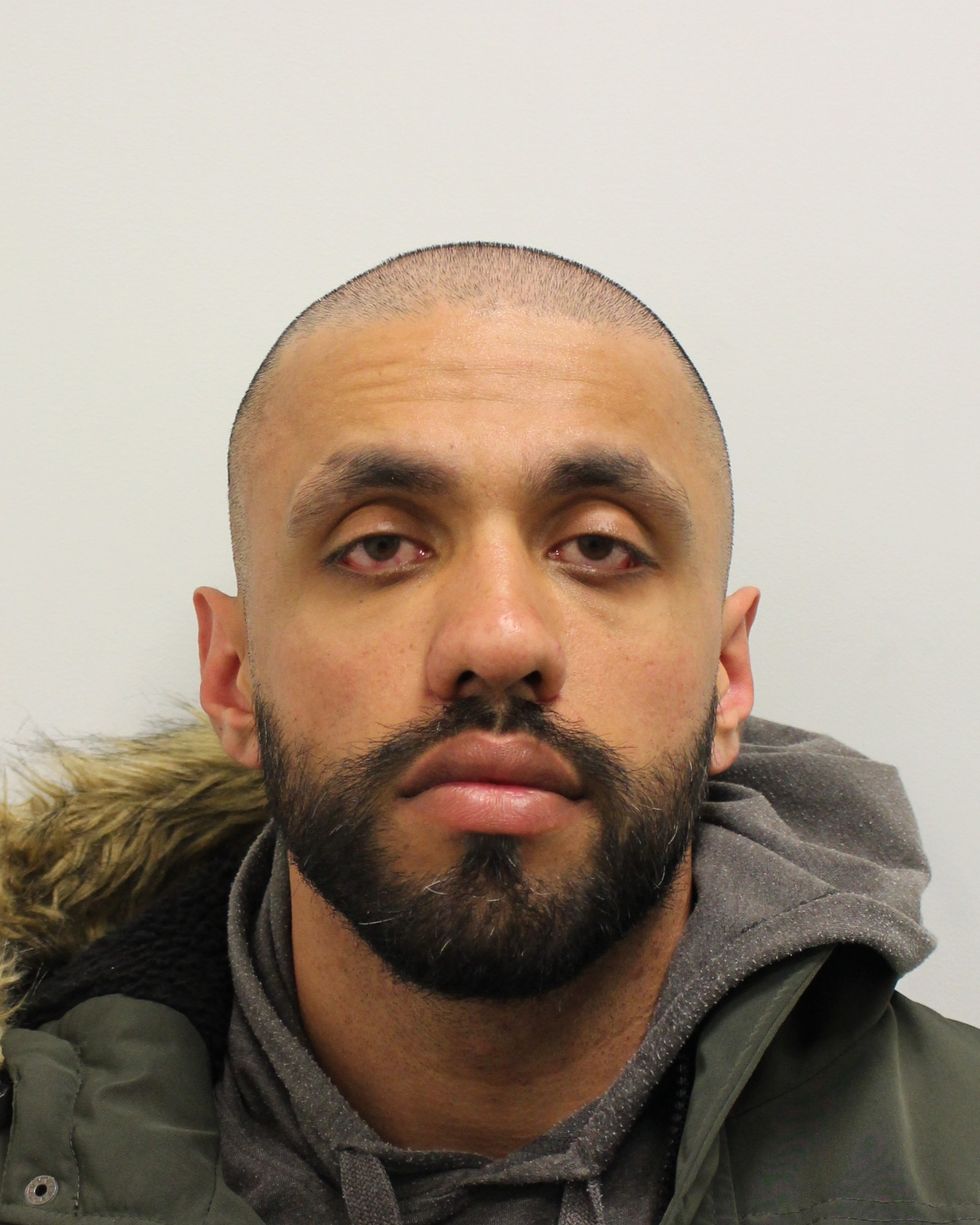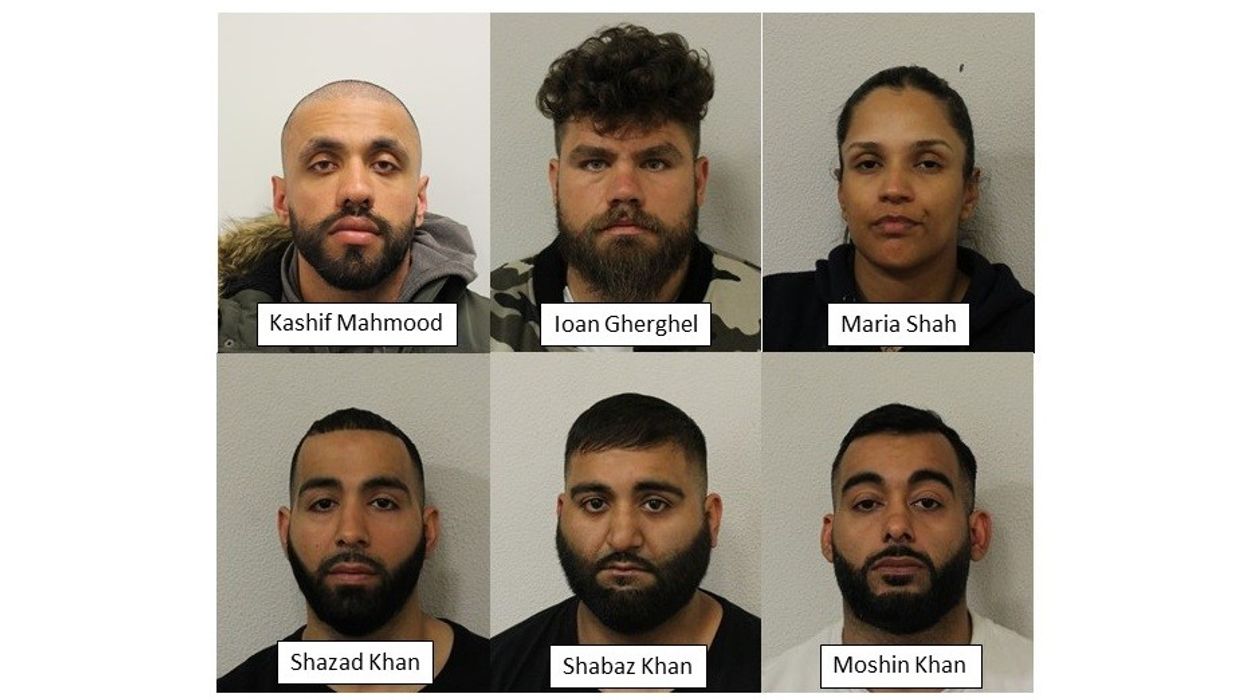SIX people, including a former Metropolitan Police officer, were jailed for more than 64 years on Thursday (13) by a UK court for intercepting rival drug gang couriers to seize hundreds of thousands of pounds.
The Southwark Crown Court pronounced the sentence after they admitting a range of offences following an investigation by the Met’s directorate of professional standards’ anti-corruption command, a statement said.
Kashif Mahmood, 32, a Met officer based at Central East until his dismissal without notice in November, was jailed for eight years.
He had previously pleaded guilty to conspiracy to acquire criminal property and misconduct in public office.

The court heard Mahmood used police vehicles and resources to take cash from the couriers in carefully planned operations led by a contact orchestrating events through an encrypted communications network, the Met Police said in a statement.
The sentences for other gang members-Ioan Gherghel, 34, (six years), Moshin Khan, 36, (16 years), Shabaz Khan, 33, (14 years), Shazad Khan, 33, (15 years) and Maria Shah, 35, (5 years, 4 months).
“Mahmood may have been a police constable in name, but he was nothing more than a criminal who abused his position to look after the interests of organised crime. His motive, we have to assume, was money; he was paid handsomely for his endeavours," said Bas Javid, deputy assistant commissioner, Directorate of Professionalism.
"There is absolutely no place for any corrupt officer within the Metropolitan Police Service and we have the largest dedicated counter corruption unit within UK law enforcement. The fight against corruption is always present and we appeal for everyone to play their part, by remaining vigilant and reporting concerns to the police, the Independent Office for Police Conduct or Crimestoppers.”
Officers identified that Mohsin Khan and his twin brothers Shabaz and Shazad were involved in moving class A drugs, mainly heroin and cocaine, and the laundering of criminal cash. Maria Shah, Mohsin’s partner, helped move and conceal proceeds.
Mahmood, a close friend of the Khan brothers, used police vehicles to travel while in uniform to seize money from criminal couriers. He was twice helped by Ioan Gherghel who was not a police officer but pretended to be, the statement added.
The conspiracy was orchestrated by a man based in Dubai who used EncroChat, an encrypted communications platform, to communicate. Khan who was the main point of contact.
In July 2019 and January 2020 Mahmood looked up police records to source intelligence about the EncroChat contact, who appeared concerned what police knew about him.
The court heard there were seven occasions between 20 November 2019 and 25 March 2020 when Mahmood booked out a police vehicle from Stoke Newington police station.
"He used these vehicles to intercept couriers and seize or attempt to seize up to £450,000 at a time. On one occasion, on 8 March 2020, Mahmood and Gherghel were travelling in a police vehicle to intercept a courier of criminal property in Chingford, E4. They searched his car and took a bag, which it is claimed contained a large amount of cash, and a further £2,000. They did not arrest the man," the Met Police said.
"Unknown to them, the suspected courier was under surveillance by the Met’s proactive money-laundering team. These officers subsequently stopped Mahmood to investigate why he had searched the car. Mahmood said there were concerns of drug dealing in the area and agreed to complete an intelligence report. However, the proactive money laundering team were suspicious and later shared their observations with anti-corruption colleagues."
On 28 April 2020, Mahmood was arrested at his home in Harlow and Gherghel in Stratford. A search of Gherghel’s address revealed a Met stab vest and £11,385 in cash.
According to the Met Police, three Rolex watches recovered, including one he had bought on 14 March for £7,696, paying £6,000 in cash. Investigators discovered more than £40,000 paid into Mahmood or family bank accounts between October 2019 and 30 May 2020.
Despite the arrests of Mahmood and Gherghel, the Khans and Maria Shah continued their activities. On 7 July, police arrested the Khan brothers and Maria Shah. Evidence seized included £39,525 in cash, more than 20kg of cannabis, paraphernalia for packaging drugs and a box for an encrypted mobile phone. At addresses linked to Shabaz Khan was found around £101,500 in cash, the Met Police said.
A misconduct hearing was held for Mahmood on Thursday, 26 November. All allegations were proven and he was dismissed without notice. He has been placed on the College of Policing’s barred list.
All the defendants were subsequently charged and later offered guilty pleas.





